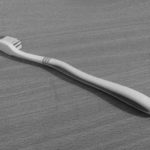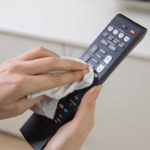To protect their children, parents are always trying to keep their little ones impeccably clean. However, it turns out that may not always be the best thing for them.
Professor Jack Gilbert made a confirmation in his study: “Most parents assume all bacteria are bad, but that’s not true at all. Many are beneficial to health, stimulating a young immune system to mature more robustly and comprehensively.”
1. Getting Dirty Strengthens Immune Systems
According to the Center for Gene and Environmental Studies in the U.S., there are approximately 100 trillion microorganisms living inside you, including bacteria, fungi, viruses, and protozoa. And a huge number of those microorganisms are good bacteria, helping you digest your food, manufacture vitamins, and fight off bad bacteria.
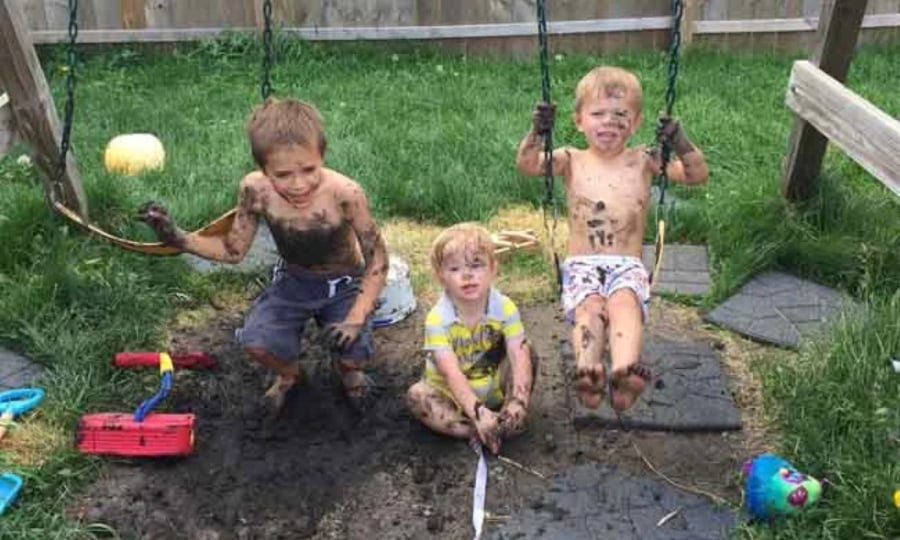
Getting dirty can boost a child’s immune system, making them healthier. (Illustrative photo)
Over time, each person develops their own unique microbiome, particularly during early childhood. Playing in the dirt introduces beneficial bacteria, which will help to establish a baseline microbiome and maintain a healthy balance of good and bad bacteria. Exposing your children to a wider variety of microorganisms helps their immune systems mature faster and work more effectively.
Early exposure to bacteria is instrumental in building a healthy immune system. The hygiene hypothesis posits that children raised in overly clean environments will not be exposed to enough germs, and as a result, their immune systems will not “learn” how to respond to germs.
2. Getting Dirty is Good for Young Brains
There’s a harmless bacteria found in dirt called Mycobacterium vaccae. A 2007 study suggested that it prompts the brain to produce serotonin, a neurotransmitter chemical that helps regulate mood and other bodily functions. Low serotonin levels have been linked to anxiety and depression.
Dirt engages all of a child’s senses. Different textures and temperatures stimulate tactile development. Just the earthy, sweet smell of it can stimulate the olfactory senses.
The range of colors present in dirt, and the insects that inhabit it, provide visual stimulation. Being outside in nature can boost auditory development, with the wide variety of natural sounds. It’s inevitable that something will end up in their mouths, which stimulates their sense of taste.
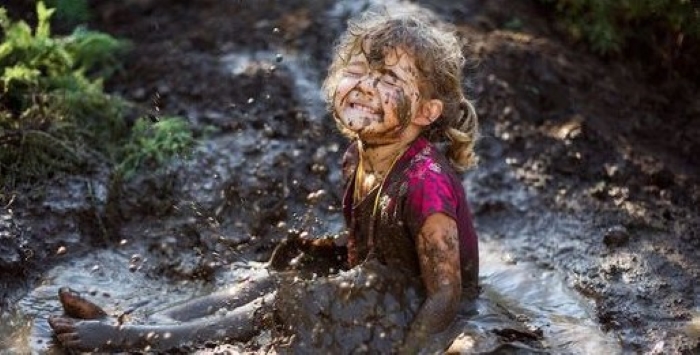
Getting dirty can make children joyful and happy. (Illustrative photo)
3. Getting Dirty Keeps Kids Happy and Joyful
Children get a genuine thrill out of getting dirty. They love to run through sprinklers, splash in puddles, and feel the grass beneath their bare feet. They love to climb trees, pick berries, and play in the mud.
Kids today are under a lot of pressure and stress. They need to unwind, relax, and just be kids. Getting dirty is a fun activity that can be shared with a parent or friend. And parents are sure to see more smiles, laughter, and contentment from their kids.
4. Getting Dirty Helps Ward Off Allergies and Asthma
A study compared the incidence of asthma in children raised on farms to the incidence in children raised off farms. That study concluded that farm children, who are exposed to a wider range of fungi and bacteria, have lower rates of asthma.
According to Johns Hopkins Medicine, children over the age of one who are exposed to furry pets and household microbes are less likely to develop allergies and asthma.
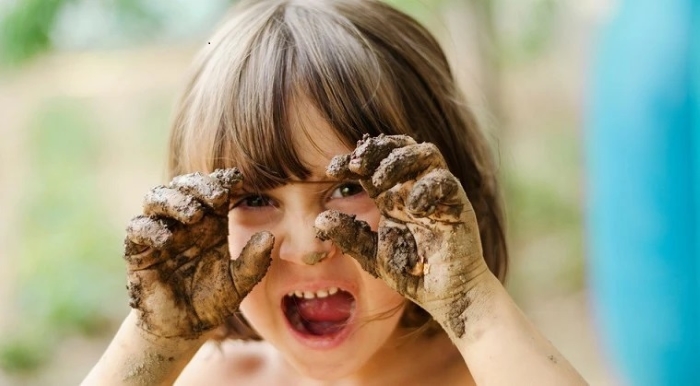
Getting dirty helps children develop a love for the outdoors. (Illustrative photo)
5. Getting Dirty Fosters a Love of Nature
Dirt is full of worms, grubs, frogs, and snails. It’s also integral to beautiful and bountiful flower and vegetable gardens. When your child plays in the dirt, they are also experiencing and exploring nature. They are learning how plants and insects thrive.
8 Common Mistakes People Make with Cutting Boards
Are you using your cutting board correctly? Many Vietnamese households rely on cutting boards in their kitchen, but not everyone knows how to use them properly, especially when it comes to wooden cutting boards. Check out these 8 mistakes to avoid when using a cutting board to ensure both hygiene and safety for everyone in your family.
























